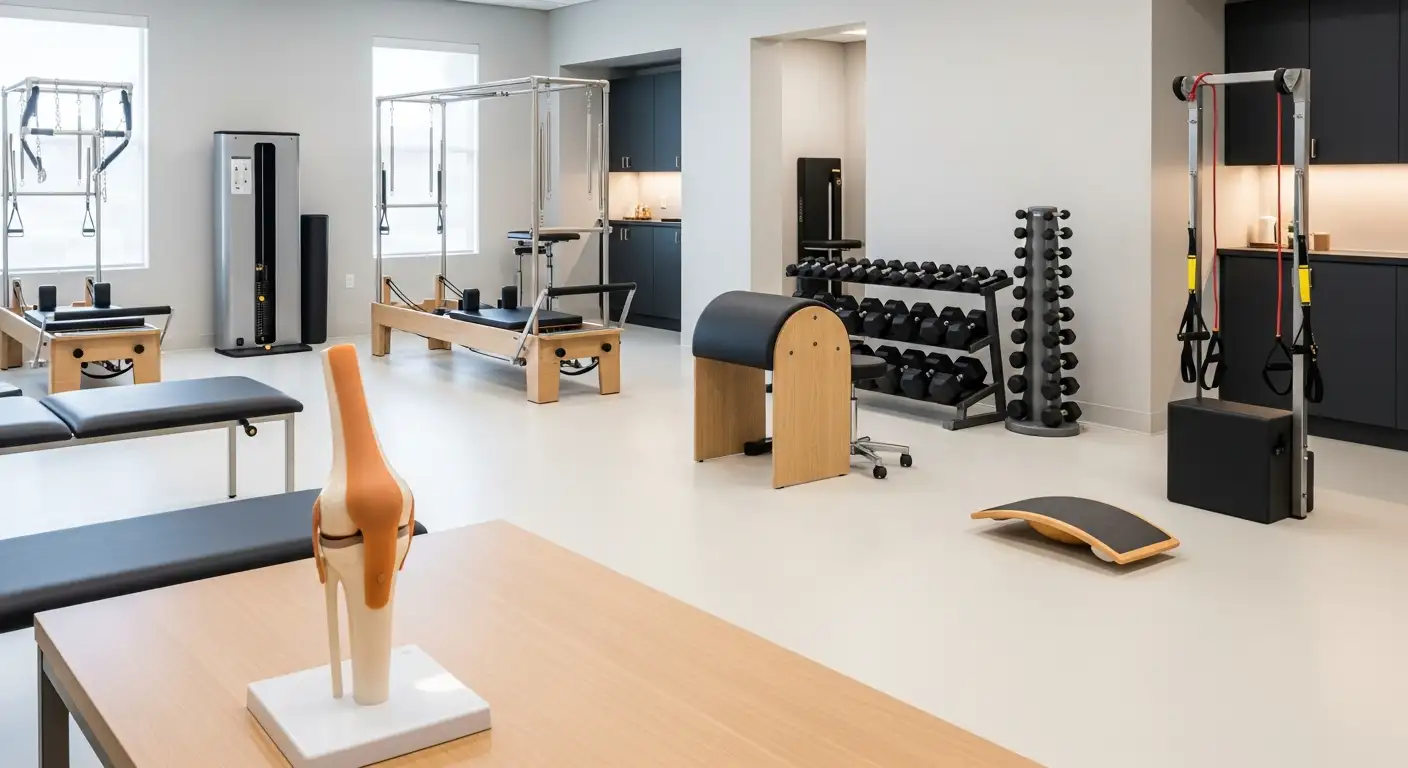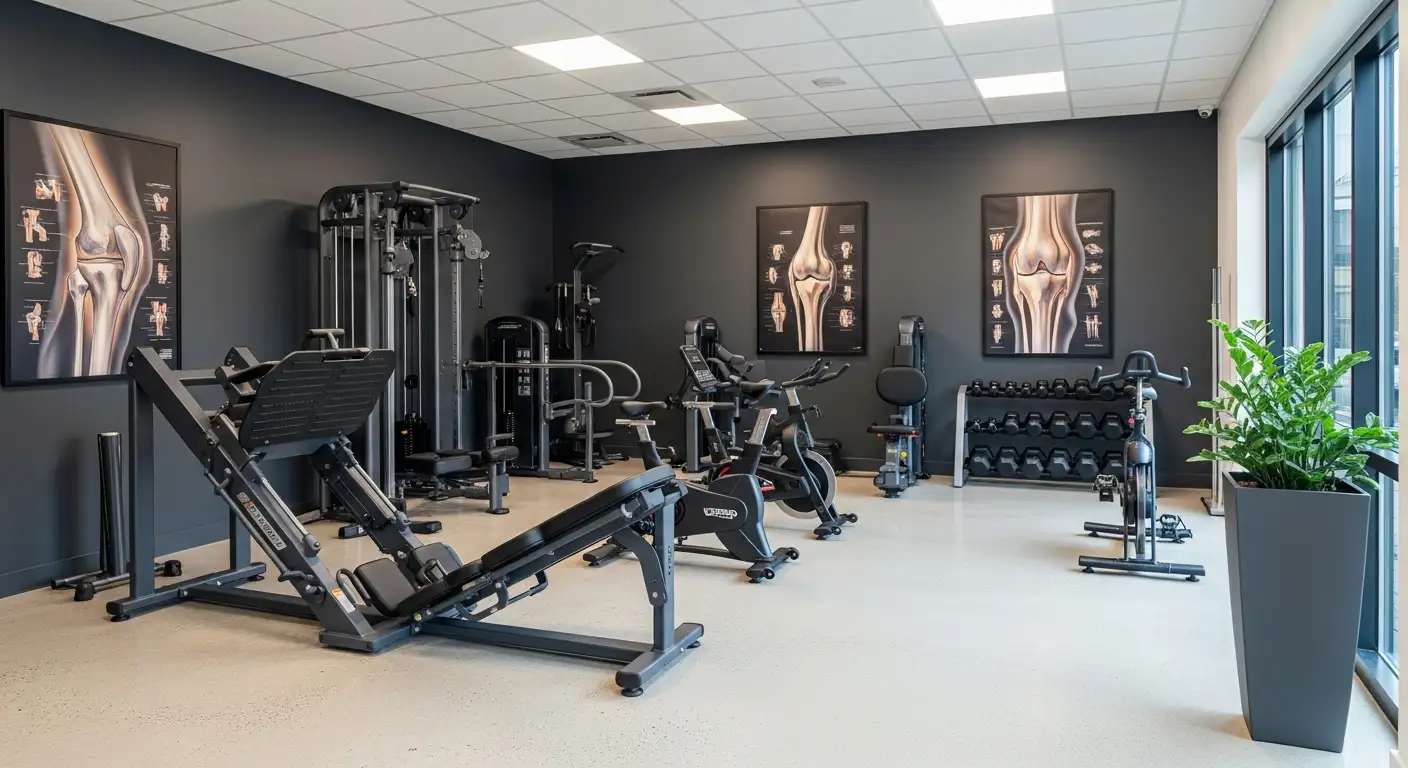Preparing for Knee Replacement Surgery
Knee replacement surgery is a significant procedure with a critical recovery period. Therefore, adequate preparation before the surgery is essential. This process involves physical, environmental, and psychological preparations.
The Importance of Pre-Operative Preparation
Pre-operative preparation is a crucial part of the road to a successful knee replacement surgery. It plays a significant role in reducing post-operative complications, facilitating a smooth recovery, and improving the overall outcome of the surgery.
Physical preparations include strengthening and conditioning the body and joints before the surgery. This can involve activities such as utilizing an exercise bike to improve muscle strength, endurance, and range of motion, and engaging in lower impact activities like yoga, biking, or swimming HealthPartners.

Environmental preparations involve making modifications to your home to facilitate a comfortable recovery process. This includes making necessary arrangements in the living room, kitchen, bedroom, and bathroom Allina Health.
Psychological preparedness is also vital. Understanding the procedure, setting realistic expectations for recovery, and maintaining a positive mindset towards the surgery can contribute to improved outcomes and overall satisfaction with the surgical process Popb.md.
Consultation and Pre-Operative Assessments
Before the surgery, individuals will undergo several consultations and pre-operative assessments. These sessions are essential for preparing for knee replacement surgery as they provide the opportunity to discuss the procedure in detail with the healthcare team and address any concerns or questions.
During these consultations, it is crucial to inform the healthcare team about all medications currently being taken, as some may need to be adjusted before surgery. This includes prescription drugs, over-the-counter medications, and supplements. Any allergies or sensitivities to medications should also be mentioned Penn Medicine.
Additionally, consultation with a physical therapist or healthcare provider to create a personalized exercise routine tailored to an individual's specific needs and condition is recommended Healthline.
By taking these steps and adequately preparing for knee replacement surgery, individuals can enhance their chances of a successful surgery and a smooth, efficient recovery.
Physical Preparations for Surgery
When preparing for knee replacement surgery, there are several physical preparations that can contribute to a successful operation and smoother recovery. These include strengthening exercises for the knee, weight management, and lifestyle changes.
Strengthening Exercises for the Knee
Building strength, flexibility, and endurance in the knee joint area is an essential part of preparing for surgery. Engaging in exercises like leg lifts, hamstring curls, calf stretches, and quad sets can help improve muscle strength and overall mobility, leading to a smoother and quicker recovery after the operation.
Additionally, conditioning your body and joints before knee replacement surgery can aid in recovery. Pre-surgery exercises, such as utilizing an exercise bike, can help improve muscle strength, endurance, and range of motion. Lower impact activities like yoga, biking, or swimming are also recommended [2].
Importance of Weight Management
Maintaining a healthy weight before knee replacement surgery can significantly reduce the stress on the knee joint, leading to better surgical outcomes. Weight management through a balanced diet and regular physical activity is essential in preparing for the surgery.
Interestingly, research indicates that losing one pound of weight can alleviate four pounds of pressure on the knees. This may help ease discomfort before and after knee replacement surgery.
Lifestyle Changes Prior to Surgery
Making certain lifestyle changes prior to surgery can also aid in the preparation process. Regular low-impact exercises, such as those mentioned earlier, can help boost muscle strength and improve overall mobility. This is not only beneficial for the surgery itself but also for the recovery process.
In conclusion, physical preparations are a crucial aspect of preparing for knee replacement surgery. By focusing on strengthening exercises, weight management, and positive lifestyle changes, you can significantly improve your surgical outcomes and recovery process.
Understanding Potential Risks
While preparing for knee replacement surgery, understanding potential risks is a crucial part of the process. This includes familiarizing oneself with common post-operative complications and potential issues with knee implants.
Common Post-Operative Complications
Most people who undergo knee replacement surgery do not experience complications, and when they do occur, they are usually minor and treatable. The risk of complications depends on factors such as the individual's age and general health.
Blood clots or deep vein thrombosis (DVT), are possible post-surgical complications due to changes in blood flow after the procedure. While often not serious, a clot that travels to the lungs (pulmonary embolism) can lead to severe complications. Treatments include anticoagulant medicines, compression stockings, and continuous monitoring.
Infections in the knee wound are another potential complication. Usually, these infections can be treated with antibiotics. However, if the infection spreads deeper into the knee joint, further surgery may be necessary.
Additionally, there is a slight risk of damaging a blood vessel, nerve, or ligament around the knee joint during surgery. Although these complications are not common, they can be addressed during surgery or will heal independently over time.
Longevity and Potential Issues with Knee Implants
In terms of longevity, most knee replacements last for about 20 years or more. However, there can be ongoing issues with the new knee joint, including stiffness, pain, or difficulty in performing certain activities. Physiotherapy and specific exercises can help manage these problems.
While the need for a revision surgery later in life is not common, it may be required depending on the individual's circumstances. Therefore, it's important for patients to maintain regular follow-up appointments with their healthcare provider to monitor the condition of their knee implant over time.
Understanding these potential risks is an essential part of preparing for knee replacement surgery. It allows individuals to make informed decisions about their health, set realistic expectations, and take proactive steps to minimize potential complications.
The Role of Home Environment
When preparing for knee replacement surgery, the home environment plays a crucial role in recovery. A safe and comfortable home environment can facilitate a more efficient healing process and minimize potential complications.
Preparing Your Home for Post-Surgery Recovery
Preparing the home for a knee replacement surgery recovery involves addressing both the inside and outside environment. Modifications should be made in the living room, kitchen, bedroom, and bathroom to facilitate a comfortable recovery process. This includes arranging everything needed within easy reach and limiting stair use to once a day. If assistance is required for activities like bathing, cooking, and running errands, it is advised to ask the healthcare provider about having a trained caregiver at home for the first 1 or 2 weeks after surgery.
Before going to the hospital for knee surgery, it's essential to prepare the home adequately, ensuring all necessary items are within easy reach and that the environment is safe and conducive to recovery.
Safety Measures to Prevent Post-Surgery Complications
Safety measures in the home post-surgery are crucial to preventing complications. To aid in post-surgery mobility and prevent excessive knee flexion, it is recommended to raise the toilet seat height using a seat cover, elevated toilet seat, or a toilet safety frame. Additionally, having safety bars in the bathroom that are secured vertically or horizontally to the wall is advised to prevent falls.
Creating a safer bathroom environment post-surgery involves sitting on a bath or shower chair during showering to minimize the risk of slipping. It is also important to avoid carry objects while walking to maintain balance, considering the use of a small backpack or fanny pack to carry essentials like a phone.
Tripping hazards in the home should be removed to prevent falls during the post-surgery recovery period. Small or mobile pets should be kept elsewhere for the first few weeks after returning home. To enhance mobility, practicing the correct use of mobility aids like canes, walkers, crutches, or wheelchairs is recommended.
These adjustments to the home environment can significantly impact the recovery process after knee replacement surgery, helping patients return to their regular activities more quickly and safely.
Importance of Post-Surgery Care
After undergoing knee replacement surgery, the recovery period is crucial. This phase involves both physical therapy and rehabilitation, as well as proper nutrition and hydration. Both aspects contribute to an efficient recovery and a successful surgery outcome.
Physical Therapy and Rehabilitation
Physical therapy is an integral part of the recovery process after knee replacement surgery. Through individualized care programs tailored to the patient's needs and goals, physical therapy accelerates the recovery process, helps regain strength and range of motion, and aids in returning to daily activities.
This process usually involves a variety of exercises designed to improve strength, flexibility, and balance. It's important to work with a qualified physical therapist who can design a personalized rehabilitation plan and monitor progress. Following this plan diligently can significantly improve the success of the surgery and help regain mobility and independence.
Nutrition and Hydration for Recovery
Good nutrition and proper hydration are also essential for recovery after knee replacement surgery. Eating well-balanced meals and snacks contributes to quick recovery and overall well-being. Lack of proper nutrition can lead to fatigue and hinder self-care ability.
It's recommended to consume six to eight 8-ounce glasses of liquids, especially water, daily to aid in the recovery process.
In addition, it's important to consume foods high in vitamin C as it helps absorb iron from plants like spinach. Good sources of vitamin C include oranges, broccoli, tomatoes, kiwi, strawberries, peppers, potatoes, and cabbage [8].
Even when not feeling hungry, it's advised to make time for meals and snacks to ensure proper nutrition during the recovery phase.
Utilizing a healthful foods chart can assist in selecting nutrient-rich foods essential for the recovery process. For any questions regarding nutrition and recovery, consult a healthcare provider.
Taking care of oneself post-surgery, both from a physical and nutritional standpoint, can make a significant difference in the recovery process. It's important to follow the advice of healthcare providers and be patient with the body as it heals.
Psychological Aspects of Knee Replacement
The psychological aspect is a crucial part of preparing for knee replacement surgery. It involves setting realistic expectations and having effective coping mechanisms and support systems in place.
Setting Realistic Expectations
Before undergoing knee replacement surgery, it's important for patients to set realistic expectations for the procedure and the recovery process. This includes understanding the potential limitations and challenges that may arise during the recovery period.
Understanding what to expect can help alleviate anxiety and foster a more positive mindset towards the surgery. In fact, a positive mindset can contribute to improved outcomes and overall satisfaction with the surgical process.
It's also essential for patients to communicate their concerns and expectations with their healthcare team. This ensures that they receive the necessary support and guidance throughout the surgical process.
Coping Mechanisms and Support Systems
Psychological preparedness is as important as physical preparedness before knee replacement surgery. It can help patients cope with the physical and emotional demands of the procedure [3].
Support systems, such as family, friends, or support groups, play a crucial role in providing emotional support and assistance during the recovery period [3]. Such support can ease feelings of anxiety or stress related to the surgery and its aftermath.
In addition, patients might find it helpful to learn stress-reducing techniques, such as deep-breathing exercises or mindfulness meditation. These can help manage pre-surgery anxiety and post-surgery discomfort.
By understanding the psychological aspects of knee replacement surgery, patients can be better equipped to handle the challenges of the procedure and recovery period. This is a significant part of the journey towards regaining mobility and improving quality of life.
References
[1]: https://www.healthline.com/health/total-knee-replacement-surgery/exercises
[2]: https://www.healthpartners.com/blog/preparing-for-knee-replacement/
[3]: https://www.popb.md/2022/09/30/lifestyle-changes-after-knee-replacement-surgery/
[4]: https://www.nhs.uk/conditions/knee-replacement/complications/
[5]: https://medlineplus.gov/ency/patientinstructions/000167.htm
[6]: https://www.allinahealth.org/health-conditions-and-treatments/health-library/patient-education/total-knee-replacement/preparing-for-surgery/preparing-your-home-for-your-needs-after-surgery
[7]: https://www.inmotionoc.com/physical-therapy-before-knee-surgery/
[8]: https://www.allinahealth.org/health-conditions-and-treatments/health-library/patient-education/total-knee-replacement/after-surgery/nutrition





